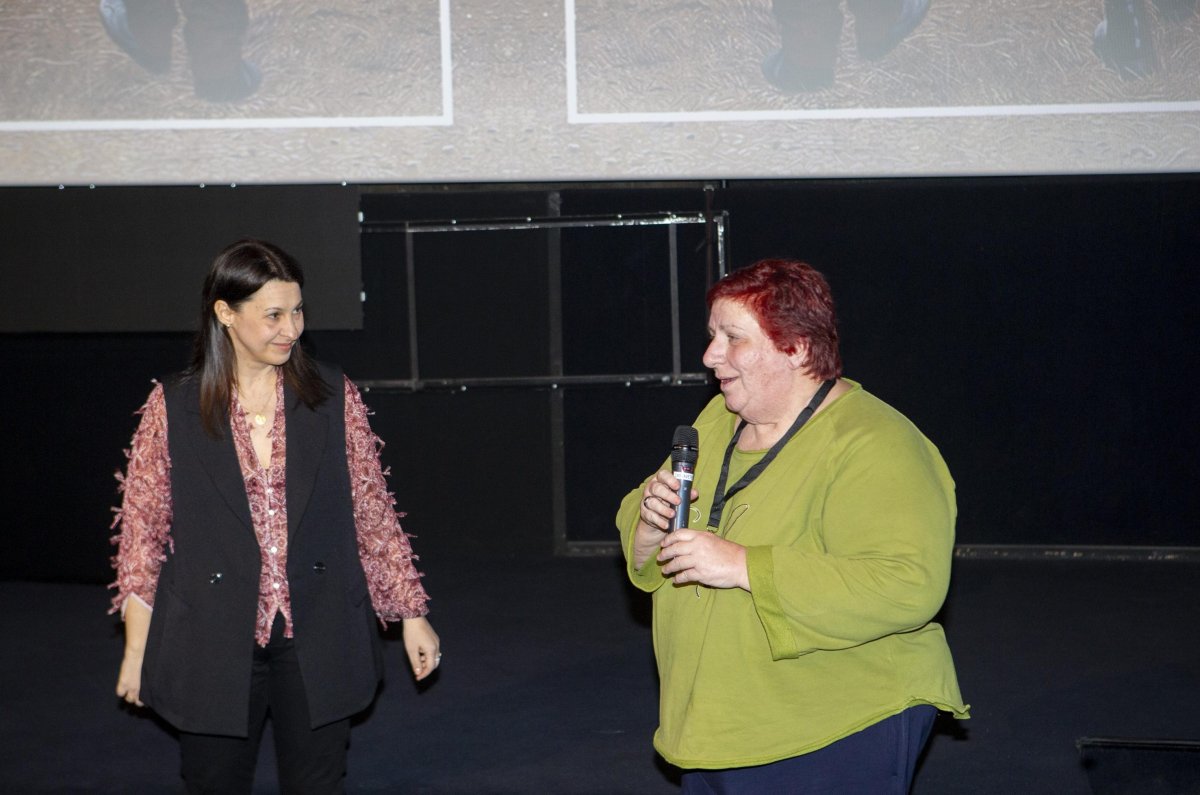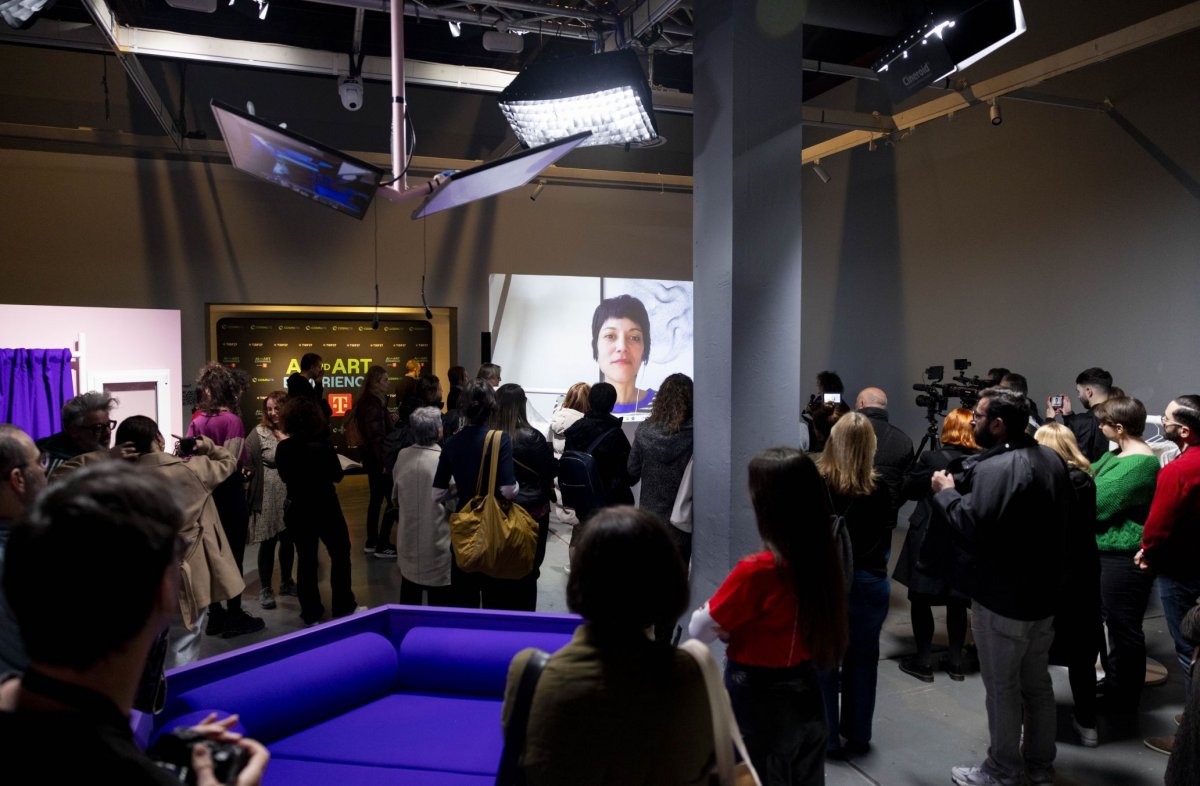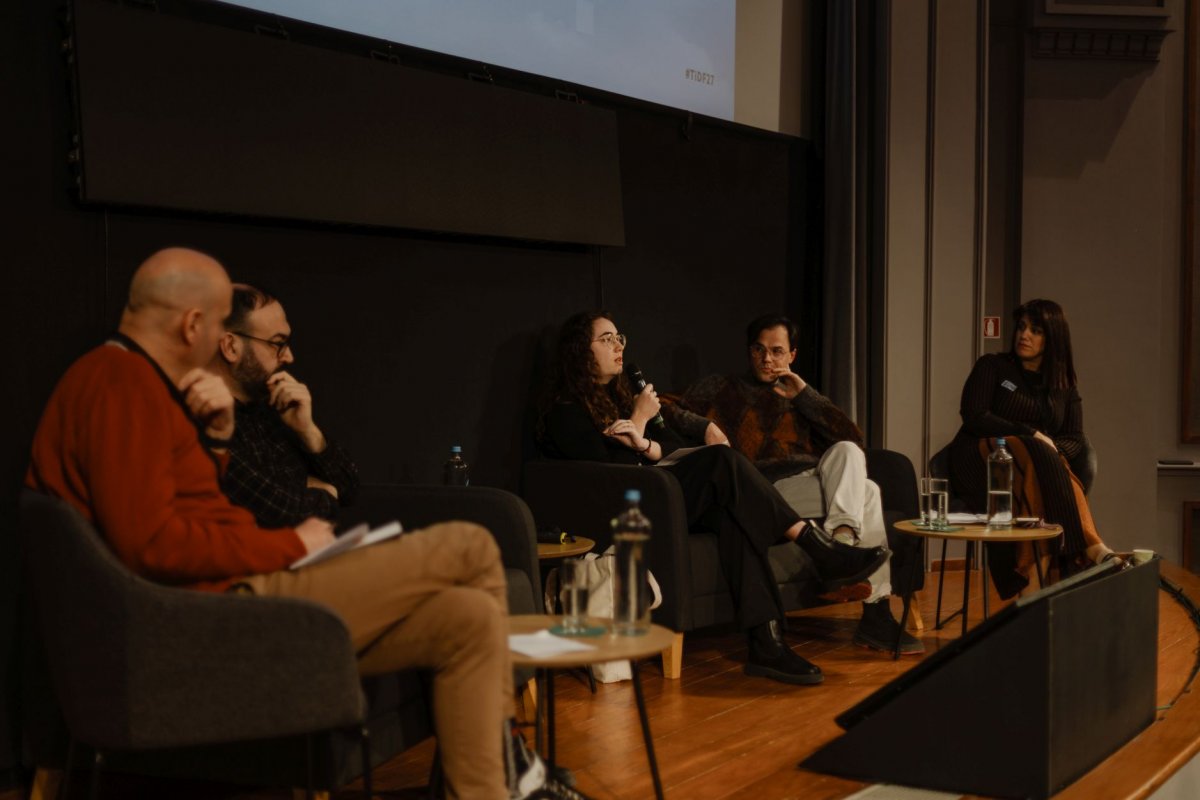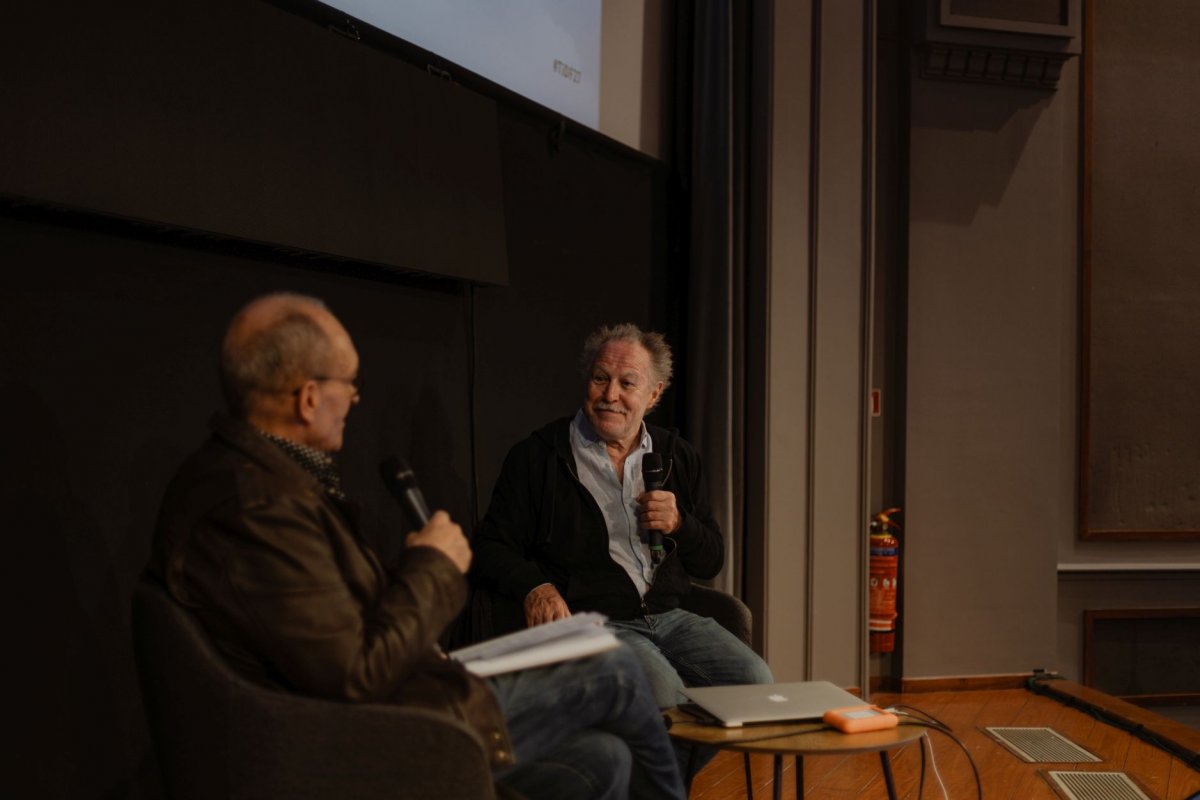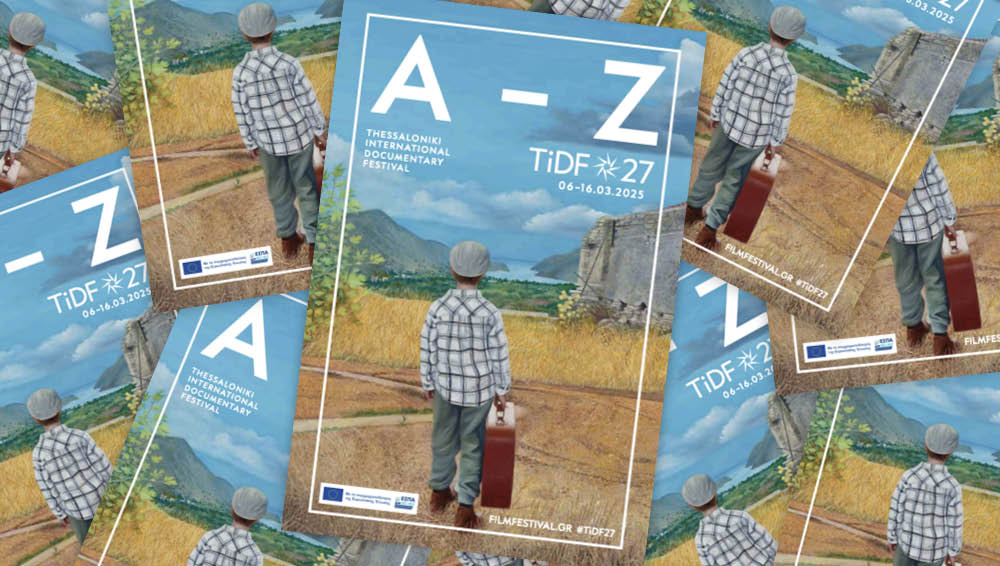The line producer of Heretic, Danae Spathara, delivered a masterclass on Saturday June 24th, at the "Melina Mercouri" cultural center in Edipsos, titled "Shooting in Evia Island – Case study: Triangle of Sadness" and analyzed her experiences during the filming of the movie Triangle of Sadness. The film, directed by Swedish filmmaker Ruben Östlund, part of which was shot in northern Evia, won the Palme d'Or and was nominated for three Oscars. The masterclass is part of the initiatives of the Evia Film Project aimed at promoting and showcasing northern Evia as an ideal destination for film shootings, complementing the FAM Trip that took place in the preceding days, which introduced the breathtaking locations of Northern Evia to Greek and international producers and location managers.
Initially, the head of the Agora, Angeliki Vergou, took the floor, welcoming Danae Spathara and providing an overview of the activities of Agora during the Evia Film Project. "We have successfully reached the final day and the masterclass that concludes our series of events. We have had five eventful days, with industry meetings, the international meeting of the CIRCLE Women Doc Accelerator program, as well as the FΑΜ Trip, that could not have been carried out without the support of the Hellenic Film Commission. At this point, I would like to thank Ms. Stavroula Geronimaki, who is here with us. The curtain will fall on our activities with the location scouting masterclass, which will analyze, as a case study, the award-winning film Triangle of Sadness, part of which was shot at Chiliadou Beach, in Northern Evia," she stated before handing over the floor to Ms. Spathara.
"It is an honor to be here, and I extend my heartfelt gratitude to the Evia Film Project for the invitation. It all started when Heretic’s producer, Giorgos Karnavas met the film’s Swedish producer Erik Hemmendorff at the 2019 Berlinale, who was extremely concerned as the American funding for the film had just been withdrawn, and the plan to shoot in Thailand had fallen through. Giorgos Karnavas suggested the possibility of Evia and spoke to him about the location manager, Menelaos Mytilineos, explaining how northern Evia met all the requirements for the film's shooting, with its combination of secluded beaches, wild forests, and a sense of tropical jungle," she stated at first, elaborating further on the preparation that preceded.
"First and foremost, we established contact with the Hellenic Real Estate Service and the Ephorate of Antiquities, which had local jurisdiction, in order to obtain the necessary approvals and permits. In this context, we had a close collaboration with Mr. Fanis Spanos, the current Regional Governor of Central Greece and former Deputy Regional Governor of Evia. Gradually, we also reached out to other relevant local institutions, including the police, the forest protection service, port authorities, and the Office of Public Works. Of course, equally important was our engagement with the local community, whose support was essential for the successful completion of such a complex project," she explained.
"One of the biggest challenges we faced, strange as it may sound, was that the beach where the majority of the filming took place is a nudist beach. Therefore, we had to approach the nudist community and obtain their consent. It's a regular community with a hierarchical structure and distinct roles, and Menelaos Mytilineos did an amazing job of engaging with them. In fact, two members of the nudist community ended up securing positions in production and casting, respectively. Sometimes, it's very difficult to find your footing within the local community. When Menelaos initially visited the area for preliminary research, many locals mistook him either for a spy or a foreign agent, or even an amateur gold digger," Ms. Spathara explained before addressing some additional challenges they faced during the filming process.
"One of the major challenges was ensuring accommodation for a crew of over 100 people for a period exceeding one month. Other obstacles and issues were related to the ever-changing weather conditions on a beach facing the northern Aegean Sea. We had to use small boats to transport plants and vegetation from Athens to Evia, and it was also necessary to thoroughly clean the beach every day to maintain its deserted appearance. The director of photography also faced a significant challenge when the filming was rescheduled from April to September 2020. As for the pandemic, it somehow facilitated and complicated our work at the same time. On the one hand, it contributed to reduced movement and helped us achieve the desired sense of isolation. On the other hand, not only did we have to conduct daily tests on everyone, but we also had to convince our Swedish collaborators to wear masks regularly. As you may recall, the Swedish government had adopted the strategy of 'herd immunity' as a response to the pandemic, so wearing masks was something new and quite uncomfortable for them," she concluded.
Responding to questions from the audience, Ms. Spathara spoke in detail about the process of selecting Chiliadou Beach instead of other neighboring beaches in northern Evia that had been considered as options at first. She clarified that the Ephorate of Antiquities gives the green light to the Hellenic Public Real Estate Corporation for the issuance of the necessary permit, and made a specific reference to the necessity of establishing regional and decentralized Film Offices, which act as intermediaries between film productions and local authorities.
Evia Film Project is the Festival’s third pillar of activities, adding its name to the International Thessaloniki Film Festival, held in November, and the Thessaloniki Documentary Festival, held in March. Its goal is to consolidate Northern Evia, a region severely hit by the 2021 calamitous wildfires, as an international hub of green cinema. Evia Film Project is actualized with the support of the Hellenic Ministry of Culture and Sports, within the framework of the Reconstruction Plan for Northern Evia, in collaboration with the Region of Central Greece, the Greek Film Centre, the Municipality of Istiea-Edipsos, and the Municipality of Mantoudi-Limni-Agia Anna. Thessaloniki Film Festival is teaming up with all institutions and bodies seated in Evia and the Department of Digital Arts and Cinema of the National and Kapodistrian University of Athens in Psachna.




